“Hadad, lord of the whole earth,’ son of the metallurgist, the noble Bedad.”
In ancient Syria, the allegorical name, King Hadad was known as Adad, or Aden. This was the Syrian Sun-god whom the Assyrians identified with their Rimmon, although Rimmon was the god of the air and not the sun. In Hadad, they had merged the Air God of Rimmon with the Sun God “Dod, Dad or El Dad”
But in Hadad the Sun-god and the Air-god were united in one, a union which has also been identified by its compound HadadRimmon (Zech. xii. n). By the side of Hadad stood his son Ben-Hadad. In ancient Syrian, Hebrew and Arabic, Ben means son. It is the kings of Edom (Gen. xxxvi. 35) who were called ” Hadad the son of Bedad,”that is Ben-[Ha]dad. Other similar names used were Hadad-idri and Bin-Hadad-idri. Hadad– idri is the Aramaean form of the Biblical Hadad-ezer. The immediate predecessor of Hadad-idri was a Ben-hadad (1 Kings xv. i8),s and this is where there has been confusion between the Lord, Hadad and his son, Benhadad
Hadad is Baʿal (Lord) which simply means ‘master.’
Since only priests were allowed to utter his divine name, Hadad, Ba‛al was commonly used. Nevertheless, few if any Biblical uses of “Baʿal” refer to Hadad, the lord over the assembly of gods on the holy mount of Heaven. However, let it be said that I believe that the original Baal is King Hadad whose descendants would be known to us now as the Priests of Baal, serpents, dragons or wise ones. The sons of God.
The name Hadad you will find has many spellings in the different languages around the world and interpretations from historians that have come down to us over the last few thousand years. In researching this unique name I have found various alternative pronunciations such as Eldad, Bedad, Dudu, Adad, Aden, Dudu, Dawd, Amnidad and Heldan.
What does Hadad mean?
In the names Dod, Dad, Dan and David we have a specific true meaning behind these other names. This true meaning would be “Father.” Hence, when we find these many different names written in literature, they are referring to one “Lord and Father.” Many Bible scholars translate the name David as Beloved, but the Hebrew root (dwd) that yields
(dod), meaning beloved in general or uncle more specifically; King David’s most important son, Solomon, was named Jedidiah by Nathan the prophet.
In the book titled, “Traditions & beliefs of ancient Israel” By Thomas Kelly Cheyne explains this name connection better than I can;
Dudu in the Amarna letters (44, 45, 52, 151). It is also probable that ‘David,’ too, indicates that the king of that name was connected with Dod or Asshur-dod. One may suspect that Ddd is a popular creation out of Dadda (= Hadad), a name which enters into the compound names which now stand as Bedad, Eldad, Medad, Almodad. For the Assyrian names connected with Dadu, ‘darling,’ see Johns, Assyrian Deeds, iii. 95.
The name Dod specially belongs to Yerahme’el, and one of the functions which is most closely connected with it is that of restoring Israel’s prosperity. As the shadows deepened on its path the people gave this divine helper an increasing share of its thoughts. Later Jewish writers speak of Michael (a modification of Yerahme’el—see pp. 59/!) when a mighty champion is felt to be needed ; but when the popular longing is for just government and an expanded empire the expected hero is either Dadu or some supernatural representative of Dod, called ‘ben-Dad.’
Let it be said that this allegorical King Hadad who we also know as Eldad, Bedad, Dudu, Adad, Aden, Dudu, Dawd, Amnidad and Heldan, I believe may be no other than the allegorical King David of the 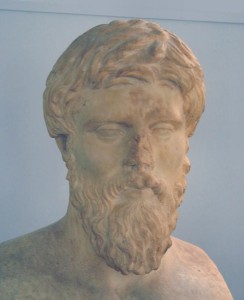 bible who is the father of Solomon which I will explain this theory further in part two of my series or articles. In addition to this relation to King David, Hadad may also be the the real Phoenician Prince, Cadmus, The Dragon Lord of Thebes passed down to us by Plutarch who would become King of Damascus and come to be known in the secret mystery schools as Hermes.
bible who is the father of Solomon which I will explain this theory further in part two of my series or articles. In addition to this relation to King David, Hadad may also be the the real Phoenician Prince, Cadmus, The Dragon Lord of Thebes passed down to us by Plutarch who would become King of Damascus and come to be known in the secret mystery schools as Hermes.
An apocalyptic work ascribed to Eldad and Medad is quoted in the Shepherd of Hermas, vis. ii. 3, 4. The quotation reads, “Near is the Lord to those who return.” As Targum Jonathan quotes a similar expression of the two prophets, “Near is the Lord to those that are in the hour of need,”
Other names for Hadad like Eldad and Medad are mentioned in the Book of Numbers, and are described as having prophesied among the Israelites, despite the fact that they had remained in the camp, while 70 elders had gone to the tabernacle outside the camp to receive the ability to prophesy from God. According to the narrative, Joshua asked Moses to forbid Eldad and Medad from prophecy, but Moses argued that it was a good thing that others could prophesy, and that ideally all the Israelites would prophesy.
Syria, calls them Adad, or Aden and particularly, writing of the great Ben bedad
At Hierapolis, or the holy city, or Magog, as the Syrians themselves are saide to have called it, in the province of Qyrrhestica, stood the temple of the great Syrian goddess (F), of Syria, calls them Adad, or Aden and particularly, writing of the great Ben bedad, the second of that name in Scripture, he tells us, he was deified, or honoured with divine worship, as was also his successor, Hazael. Here we have the first account os their deifying of Adad, or, as the Scripture stiles him, Benbadah; who, if we except his successor Hazael, was the greatest prince the antient Syrians can boast of; and we are of opinion, that this great god Hadad, or Adad, is no other than the deified Ben hadad; and from thence, it appears, that there ¦were Syrian princes of the name of Adad, before they had any god so called.
A few inscriptions of the Hamathite or Onondaga family,
to which the League founder Atotarho belonged, may complete the present series. Mr. Forster’s 90 is from the Wady Guene, and deals with the first of the Hadads.
No. XIV. keshi shishK ko do beka da ta be da ki ka nobe ta shi no
In Japanese:
gasshi seji-kota beka Adad
united world lord HadadBeda ki kanebeta shoni
Bedad noble Kanebeta son
“Hadad, lord of the whole earth,’ son of the metallurgist, the noble Bedad.”
The web that has been woven is wide and the spots of the Leopard obscured, but there is an end to the Lord’s means.

Moe is the founder of GnosticWarrior.com. He is a father, husband, author, martial arts black belt, and an expert in Gnosticism, the occult, and esotericism.

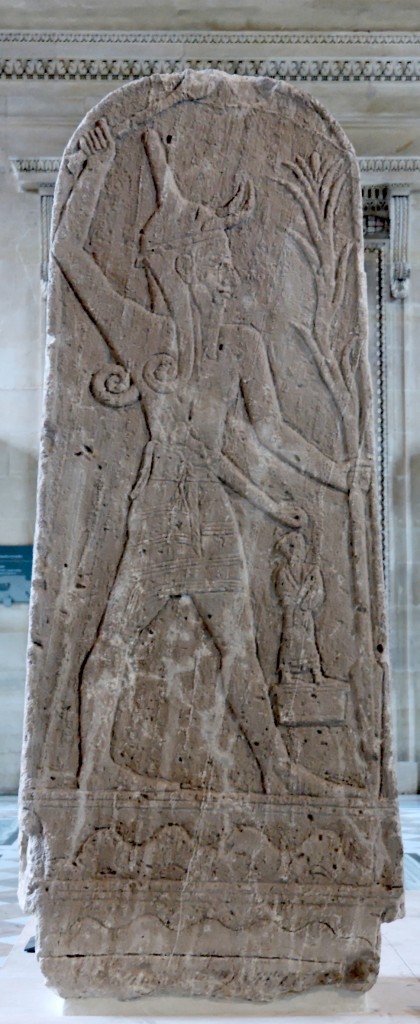
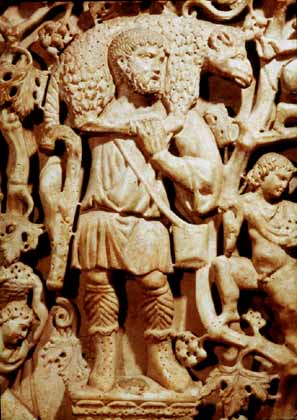
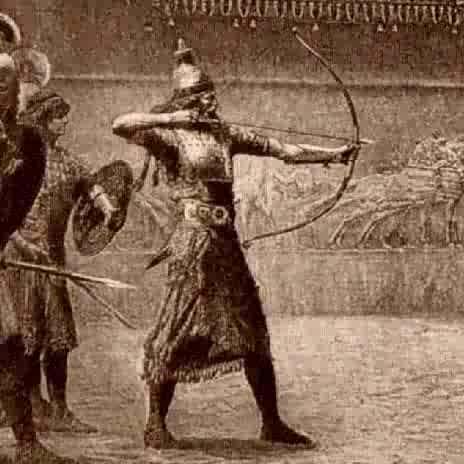





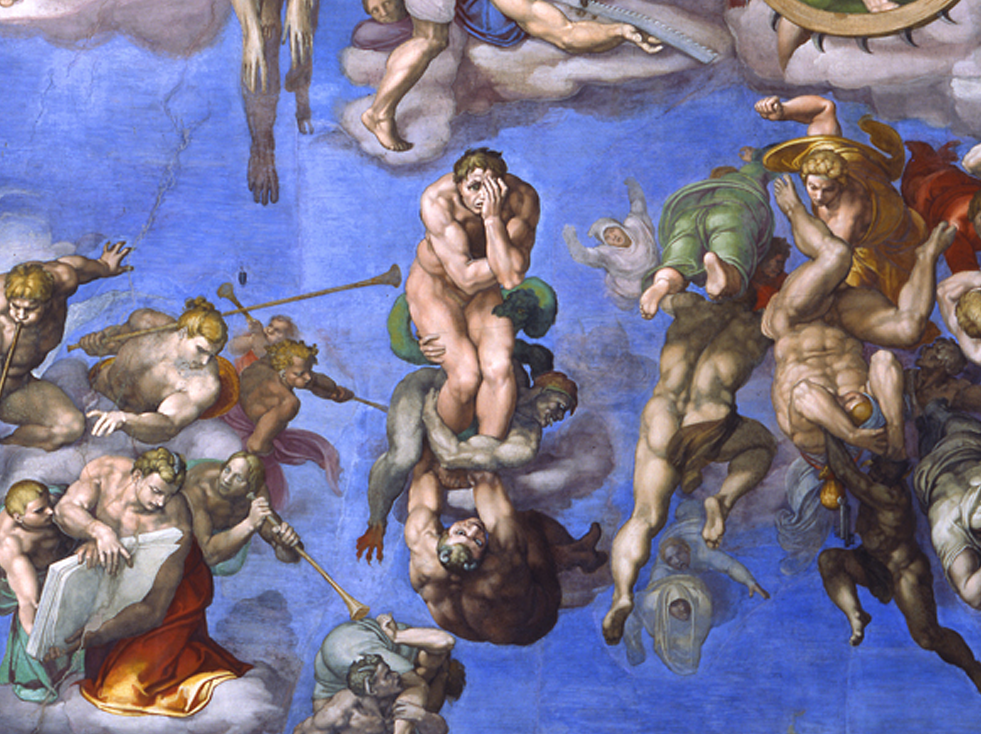
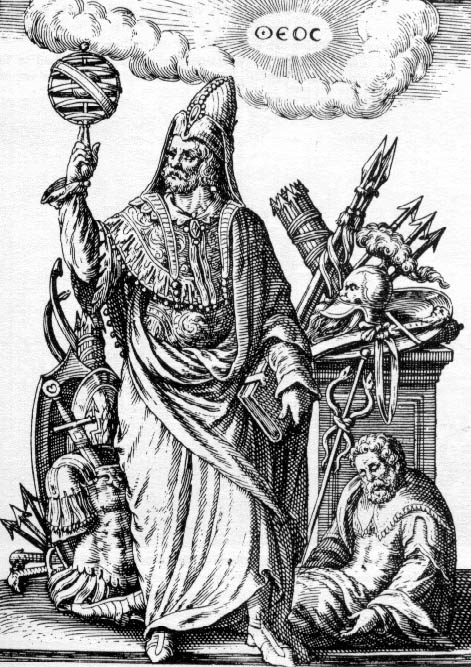
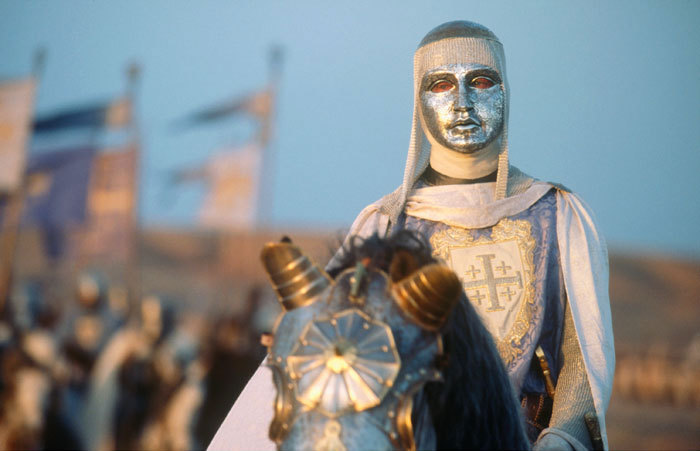
Rimmon sounds like worm and pomegranate in Hebrew.